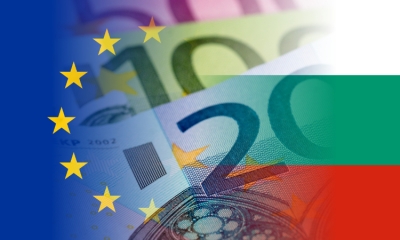Bulgaria has received the official green light from European Union leaders to adopt the euro starting January 1, 2026, marking a major step toward deeper economic integration.
The decision, made during the EU summit in Brussels, approves a European Commission proposal to allow Bulgaria to become the 21st eurozone member, replacing the lev with the euro. Bulgaria had originally planned to join in 2024 but was delayed due to unmet criteria.
The move will make Bulgaria the first EU country to enter the eurozone since Croatia joined in 2023. Formal consultations with the European Parliament and the European Central Bank are still required, but are considered procedural steps.
Despite being one of the EU’s lowest-ranked countries in terms of GDP per capita, Bulgaria has shown steady growth and currently meets the euro convergence criteria—including price stability, sound public finances, and exchange rate stability. The European Commission has forecast inflation at 3.6% in 2025 and 1.8% in 2026, strengthening the case for Bulgaria’s entry.
Protests and Referendum Efforts Persist
The road to the euro has not been smooth. Bulgaria has witnessed widespread protests, particularly from nationalist and pro-Russian groups. In February, demonstrators set fires and defaced the EU office in Sofia with red paint, eggs, and Molotov cocktails.
In May, rallies were held across the country calling for the lev to be preserved amid public fears of inflation. Opponents gathered over 600,000 signatures in support of a referendum to halt the euro transition, but parliament rejected the proposal twice—once in 2023 and again this year.
A recent survey by the Mjara Institute revealed that 54.9% of Bulgarians oppose the euro, while only 34.4% support adoption in 2026.
Still, with political and economic backing at the EU level, Bulgaria appears set to become the eurozone’s next member—despite a deeply divided public.
